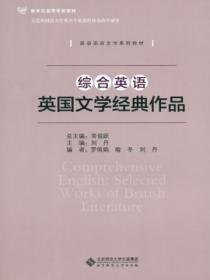Text B The Rewards of the Professions
Adam Smith
The probability that any particular person shall ever be qualified for the employment to which he is educated is very different in different occupations.In the greater part of mechanic trades, success is almost certain; but very uncertain in the liberal professions.Put your son apprentice to a shoemaker, there is little doubt of his learning to make a pair of shoes; but send him to study the law, it is at least twenty to one if ever he makes such proficiency as will enable him to live by the business.In a perfectly fair lottery, those who draw the prizes ought to gain all that is lost by those who draw the blanks.In a profession where twenty fail for one that succeeds, that one ought to gain all that should have been gained by the unsuccessful twenty.The counsellor-at-law who, perhaps, at near forty years of age, begins to make something by his profession, ought to receive the retribution, not only of his own so tedious and expensive education, but that of more than twenty others who are never likely to make anything by it.How extravagant soever the fees of counsellors-at-law may sometimes appear, their real retribution is never equal to this.Compute in any particular place what is likely to be annually gained, and what is likely to be annually spent, by all the different workmen in any common trade, such as that of shoemakers or weavers, and you will find that the former sum will generally exceed the latter.But make the same computation with regard to all the counsellors and students of law, in all the different inns of court, and you will find that their annual gains bear but a very small proportion to their annual expense, even though you rate the former as high, and the latter as low, as can well be done.The lottery of the law, therefore, is very far from being a perfectly fair lottery; and that, as well as many other liberal and honourable professions, are, in point of pecuniary gain, evidently under-recompensed.
Those professions keep their level, however, with other occupations, and, notwithstanding these discouragements, all the most generous and liberal spirits are eager to crowd into them.Two different causes contribute to recommend them.First, the desire of the reputation which attends upon superior excellence in any of them; and, secondly, the natural confidence which every man has more or less, not only in his own abilities, but in his own good fortune.
To excel in any profession, in which but few arrive at mediocrity, is the most decisive mark of what is called genius or superior talents.The public admiration which attends upon such distinguished abilities makes always a part of their reward; a greater or smaller in proportion as it is higher or lower in degree.It makes a considerable part of that reward in the profession of physic; a still greater perhaps in that of law; in poetry and philosophy it makes almost the whole.
1.Answer the following questions.
1)What is the main idea of the passage?
2)According to Adam Smith, who are more qualified for employment, people in mechanic trades or liberal professions? Why?
3)What is the purpose of using the example of lottery?
4)Why do people still crowd into liberal occupations though they might not earn as much?
5)What people may be considered as a genius? Why?
6)What professions are considered honorable according to the passage?
2.Fill in the blanks with the proper adjectives given below.
liberal
tedious
extravaganthonorable
pecuniarydecisivesuperior
distinguished
1)Don’t be so _____.Spend your money more carefully.
2)A _____ person acts quickly and often succeeds.
3)He had to finish his college education through _____ aid.
4)Elephants are _____ from other animals by their long noses.
5)You will also find a variety of _____ arts offerings online.
6)Anybody will be proud to have this _____ job to serve the queen.
7)Don’t you think you are _____ to others just because you have a better-paid job.
8)The politician’s arguments are _____ and complicated.
3.Translate the passage into Chinese and compare your version with that of your classmates.

